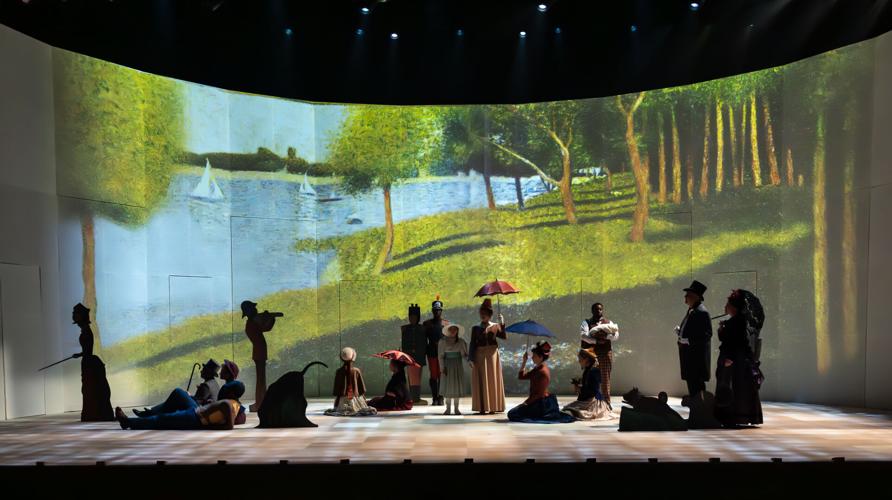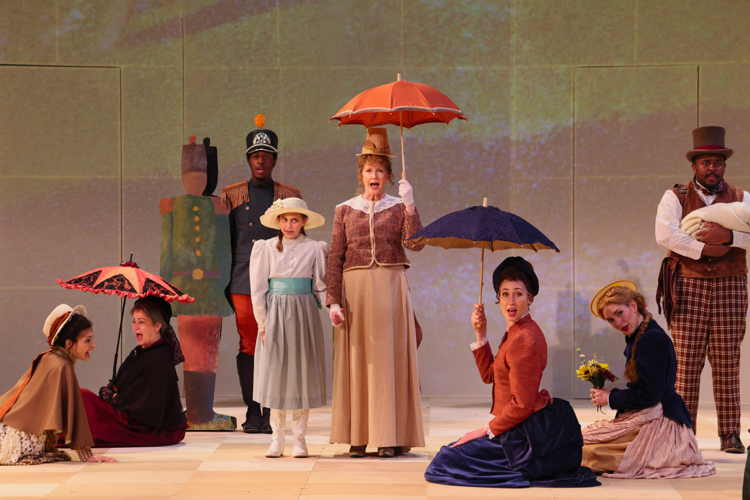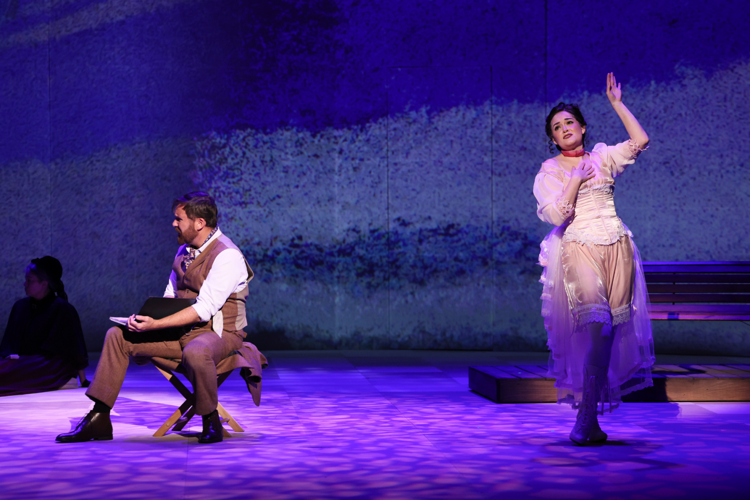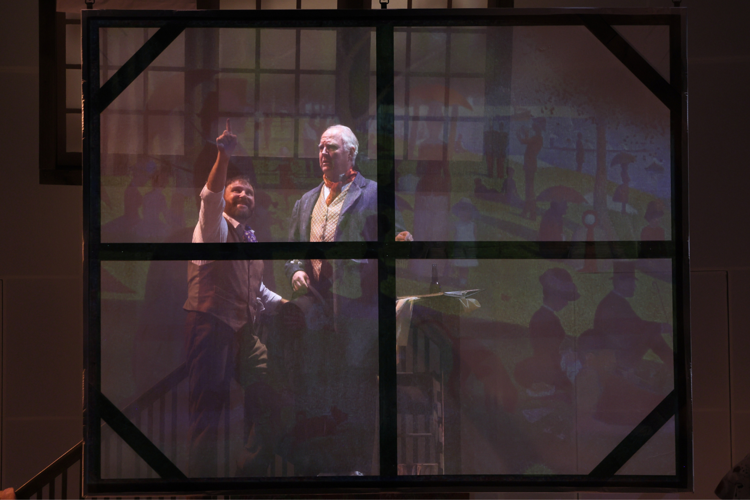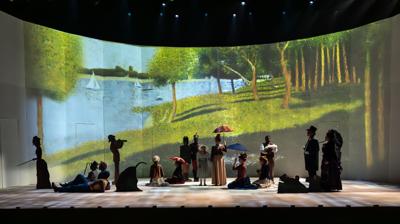In a 2008 interview with The New York Times, the legendary composer and lyricist Stephen Sondheim spoke of some of his most groundbreaking musicals, and why they were not always a commercial success.
“It takes an audience a while to get used to new ways of storytelling,” he simply said.
Perhaps that’s why Sondheim connected so deeply with Georges Seurat, the French painter who created a revolutionary technique called Pointillism in his famous painting “A Sunday Afternoon on the Island of La Grande Jatte,” and subject of Sondheim’s extraordinary musical Sunday in the Park With George.

Inspired by Seurat’s innovative work, Sunday marked the first collaboration between Sondheim and book writer James Lapine — who also directed the original 1984 production starring Mandy Patinkin and Bernadette Peters. Daring and complex, it would miss out on the Tony for Best Musical, but would go on to win the Pulitzer Prize for Drama — one of only 10 musicals to be so honored. And while some early reviews deemed the musical too “cerebral and remote,” Nashville Repertory Theatre’s current production is anything but — it offers a passionate and profoundly engaging exploration of creative vision, human connection and the emotional cost of making art.
Director Jason Spelbring (Nashville Shakespeare Festival’s new artistic director) stepped in to lead the production earlier this year, following the abrupt departure of both the Rep’s artistic and executive directors in December. (No word on when Nashville Rep will name a replacement to either post.) And with Sunday, Spelbring delivers a knockout highlighted by outstanding design and polished performances. He also does an admirable job of linking the musical’s first and second acts — quite a feat when you consider that the action is separated by 100 years.

The first act centers on the single-minded Seurat, who demonstrates an unshakable belief in his art — despite being woefully misunderstood by his contemporaries and unable to truly connect with his model/mistress Dot. Set a century later, Act II finds Seurat’s great-grandson (also an artist named George) churning out high-tech light installations, but fearing that he’s lost his way creatively, despite ongoing success.
Olivier Award nominee David Shannon commands the stage in the dual George roles, his vibrant tenor soaring in beloved songs like “Finishing the Hat” and “Putting It Together.” His Georges are appropriately pensive, but there is genuine longing there as he struggles to engage fully with the world around him. As Dot, Broadway’s Christine Dwyer (Wicked) goes toe to toe with Shannon, delivering a fierce rendition of the tongue-twisting title song, along with a gut-wrenching “We Do Not Belong Together.” She’s equally charming in Act II as the contemporary George’s grandmother Marie, offering an especially tender “Children and Art.” And together with Shannon, she provides great warmth and clarity in “Move On.”

The supporting company features some of Nashville’s finest talent, and all of the actors execute their various parts with precision. Nancy Allen gives a particularly moving performance as Old Lady (“Beautiful”), along with a fine-tuned art critic in the second act. James Crawford and Carrie Brewer are deliciously cavalier as Jules and Yvonne, and Christine Toole and Mariah Parris provide a delightful pair of Celestes. Music director Stephen Kummer leads an excellent orchestra, making the most of Sondheim’s challenging score. As the instruments and voices build together in the final moments of “Sunday,” it’s difficult not to be moved.
The production’s design team — including scenic designer Gary C. Hoff and media designer Michaela Lochen — easily draws us into the artist’s world, conjuring the layered landscape of La Grande Jatte, just as it might have first taken shape in Seurat’s notebook. A huge, curved wall offers a blank canvas for Lochen’s marvelously detailed projections, and a translucent scrim serves as Seurat’s canvas. Darren E. Levin’s lighting is stunning, whether capturing the hot summer sun or the dappled light of Seurat’s studio, and Melissa K. Durmon’s whimsical costumes add another beautiful touch.
In his director’s note, Spelbring says Sunday is “a story about seeing — how we perceive the world, how we perceive each other and how we leave our mark.” With this gorgeous production, Spelbring and company leave a lasting mark built on rich emotion and stage magic.

